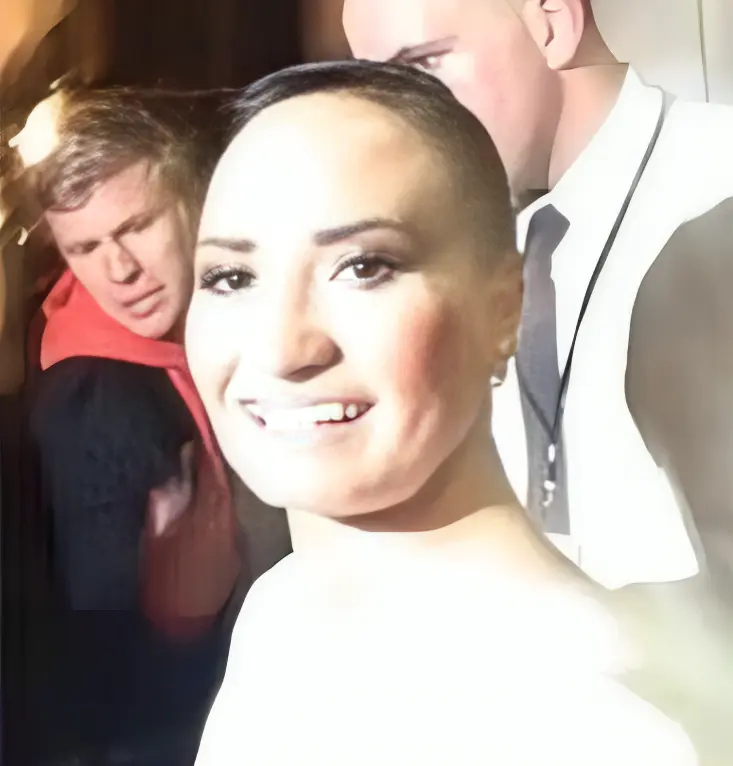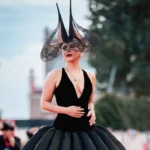Now Reading: Poot Lovato: The viral meme that changed internet culture
-
01
Poot Lovato: The viral meme that changed internet culture
Poot Lovato: The viral meme that changed internet culture

Poot Lovato is one of the few memes that have lasted through the years in the world of internet humour. A bad picture of pop star Demi Lovato swiftly turned into a strange and viral online event. Many people, including Australians who adore cheeky comedy and digital storytelling, liked this strange internet symbol.
This article looks at the bizarre story of Poot Lovato, where she came from, how she took over social media, and what it reveals about celebrity culture today.
The strange birth of Poot Lovato
It all began in 2015, when a strange picture of Demi Lovato appeared online. The picture was taken at a red carpet event and Lovato looked awful, with flat lighting and a stiff posture. The user “cstcrpt” changed the picture and posted it on Tumblr, giving it a made-up backstory:
“Demi is her twin sister.” She spent her entire life in a basement. This image captures her first outdoor experience. “Poot” is her name.
That one caption made a regular celebrity moment into the next big thing on the internet. Poot Lovato wasn’t simply a manipulated picture anymore; she was a real person.
Going viral: How Poot spread like wildfire
Poot Lovato rapidly got famous online, from Tumblr to Twitter to Instagram. Australian fans quickly caught on, and meme pages and youth forums were full of Poot jokes. There were also Reddit threads that talked about “Poot’s true story.”
People added more layers to the myth, saying that Poot had her singing career, lived in Demi’s shadow, and was a clone. This made the meme more popular. World-building is a significant aspect of meme culture, and Australians, particularly Gen Z and millennials, desire to participate in these group jokes.
How Demi Lovato reacted to the meme
Demi wasn’t pleased at first. She tweeted this but it has since been taken down:
“It’s funny to see a bad angle turn into a meme that goes around the Internet and makes people laugh.”
This answer started a fight on the internet. Some people thought the meme was insulting or body-shaming, while others thought it was just fun. Demi did, however, come to embrace the meme and even laugh at it over time.
In an interview in 2023, she said that at first she didn’t understand the picture had been changed and now she thinks it’s funny. In 2025, she fully embraced the joke by creating a TikTok that mocked Poot and included a line about having “locked Poot back in the basement.”
Why Australians love this kind of humour
Australia has a rich variety of memes and a distinctive sense of humour characterised by its dryness, causticity and self-deprecating nature. It’s not surprising that Poot Lovato resonated with Australian internet users.
The Poot meme is also part of a larger trend called “remix culture,” in which people make up silly, fake versions of famous individuals. It’s like a digital version of folklore. Fans don’t simply read celebrity news; they also change and reinterpret it for fun.
Poot’s place in internet history
Most memes are dazzling for a short time and then fade away. But Poot has become a bit of a legend. She shows how one moment can become much bigger than expected when taken out of context.
Here’s why Poot Lovato is still a meme:
- Her account of how she got here is obvious.
- The meme led to fan writing, spoof accounts, and art.
- It shows how strange our celebrity society is.
- Even Demi, the famous person in question, learned to like it.
This meme is more than a joke; it reflects our views on celebrity, identity, and online community strength.
Lessons from Poot for today’s digital world
The story of Poot Lovato teaches us a few key facts about living in the digital age:
- Celebrity control is limited: Celebrities don’t always control their online image. One unpleasant moment can change how people see them.
- Audiences are creators: Fans may construct whole imaginary universes around actual individuals on sites like Tumblr, TikTok and Twitter.
- Humour is a coping tool: Humour is a way to deal with problems. People use memes like Poot to make them laugh and forget about their problems, especially when things are tough.
Australians have a history of liking strange online phenomena (think of the Harold from Neighbours memes or the Bunnings sausage sizzle parodies), so Poot fits right in.
Conclusion
Poot Lovato is more than just a meme; she’s a pop culture artefact that went from a strange picture to a global online legend. It’s humorous, bizarre and yet uplifting how she tells her story. She shows us how unpredictable the internet can be and how comedy still affects how we interact with famous people.



























